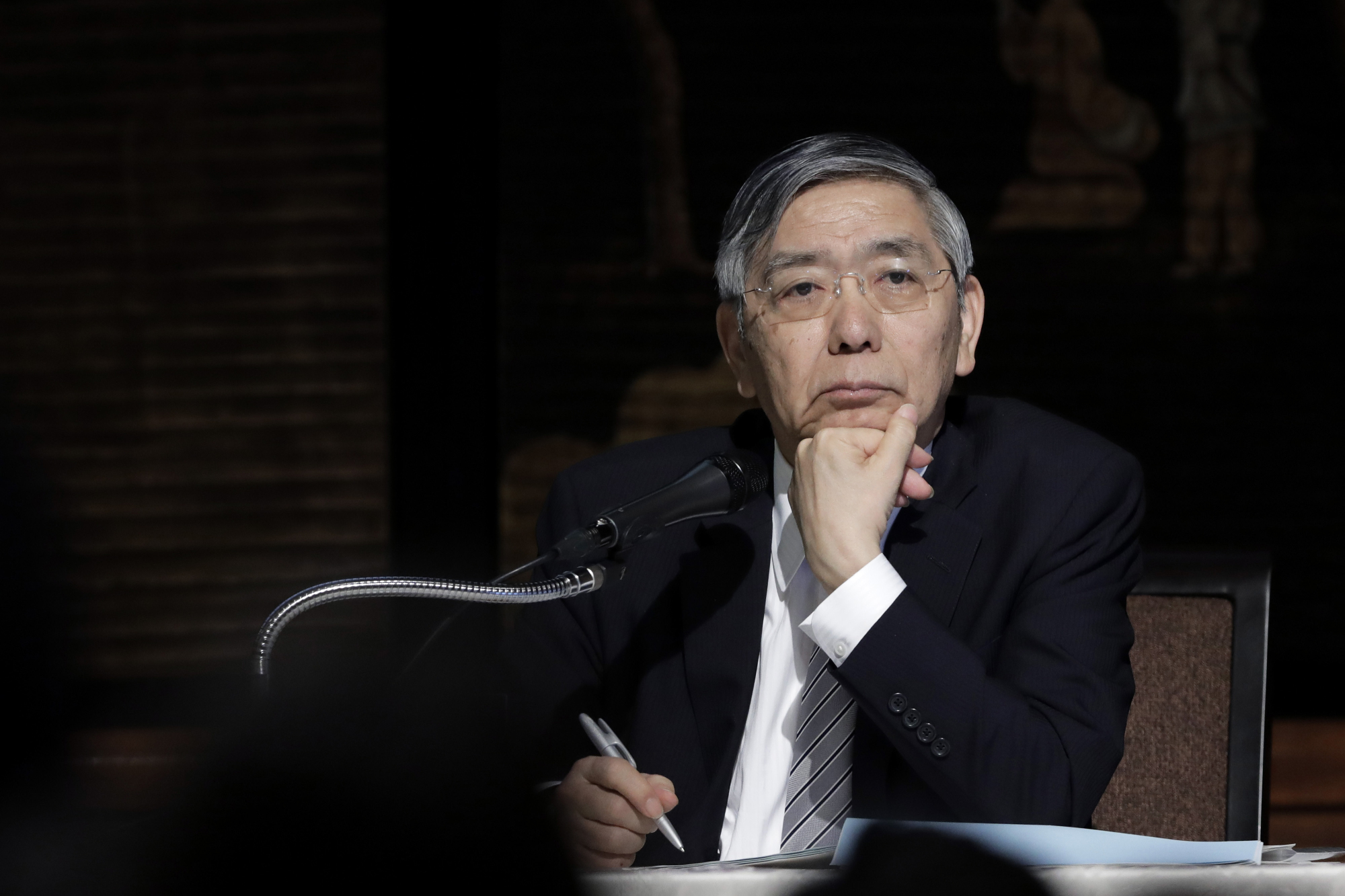Haruhiko Kuroda may rue the day he visited Nagoya. In a Nov. 5 speech to business leaders in the city, the Bank of Japan governor came close to declaring the end of deflation and the dawn of a new era. The implication was that interest rates may no longer be geared toward combating something that no longer exists. There was a whiff of normalization.
Events have caught up with Kuroda and his upbeat comments look premature, at best, and like a misreading of the economic cycle. He's likely to spend at least part of next week's policy meeting and press conference, the first of the year for the world's major central banks, walking back his Nagoya exuberance.
Kuroda's prospective Houdini act reflects disappointing Japanese data and a changed international landscape. In that sense, the BOJ is emblematic of how the global dynamics have shifted: With the expansion slowing, any central bank that hasn't already begun to tighten can forget it. That was true, even in October as I wrote here, let alone November. Even more so now.

















With your current subscription plan you can comment on stories. However, before writing your first comment, please create a display name in the Profile section of your subscriber account page.